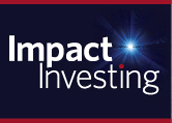VanWinkle says one of her clients has made loans through Slow Money, and that he does his own due diligence on the loans he makes. “I’m still learning how to best fit Slow Money, local investing and impact investing into the client conversation,” she says.
VanWinkle will sit on an impact-investing panel at Slow Money’s national gathering in Louisville that runs November 10-12. She says one of her goals at the panel is to help facilitate the conversation about Slow Money––and peer-to-peer local investing in general––between financial advisors and clients interested in this space.
Revolution, Evolution
It’s late May, and Slow Money founder and driving force Woody Tasch has just flown into Philadelphia and hired a ride to the city’s Chestnut Hill section to meet with a Quaker congregation who invited him to speak about Slow Money. Before he meets with them for dinner, he stops in a nearby coffee shop to speak with a reporter for an hour.
Tasch is on a mini-whirlwind tour that is taking him from Aspen to Philadelphia to Louisville to Vancouver. In Philly, he hopes to plant the seeds that could grow into a Slow Money network there. He’s flying to Vancouver for the launch meeting of that city’s nascent Slow Money network.
With his luggage nearby as he sips his iced caffeinated beverage, Tasch is doing what he’s seemingly been doing nonstop since he launched Slow Money in early 2009––namely, traveling to meet with anyone willing to hear his message about the need to change the way people think about food, investing and the planet.
“We call it Slow Money because we’re suggesting a fundamental alternative that’s on the boundary between philanthropy and investing, says Tasch, who at 63 is tall, lean and energetic. “Investing is about minimizing risk and maximizing return. What Slow Money is doing isn’t investing by that definition, but it’s investing by other definitions.
“However, it’s not philanthropy as it’s commonly understood because that’s granting money to NGOs and we’re talking about making direct loans to farmers and small businesses,” he adds. “These are small food businesses, which are particularly risky and not a great way to make money.”
Tasch’s background is in the money game, mainly at the intersection of asset management and philanthropy. He was treasurer of the Jessie Smith Noyes Foundation in New York City and founding chairman of the Community Development Venture Capital Alliance. He was also chairman of Investors’ Circle, a network of angel investors, family offices and social purpose funds and foundations that to date has invested $166 million into 265 early stage sustainability-promoting ventures and venture funds.
In late 2008 he published his book, Inquiries into the Nature of Slow Money: Investing as if Food, Farms, and Fertility Mattered, that laid the foundation for Slow Money. The book’s foreword was written by Carlo Petrini, founder of the Slow Food movement, which began in Italy in 1986 in response to the opening of a McDonald’s restaurant in Piazza di Spagna in Rome. It has since gone global with participants and projects in more than 160 countries.
Both “Slow” movements were born of a shared concern about the industrialization of the food supply. “People call it [Slow Money] a movement or a revolution,” Tasch says. “But that’s hype, and it’s not our hype. I know what we’re talking about is a new way of thinking about a certain set of issues. Whether it’s a revolution or an evolution or a mildly intriguing and incremental shift, that’s for other people to put names on it.
“A radical transformation of the food system would take billions of dollars to get farmers on the land and address processing and distribution, the restaurants and niche brands, and the seed companies,” he continues. “It’s not going to come from Wall Street or Washington, D.C., or from philanthropy. The one prayer is we’d all do it ourselves where we live—put some of our money from other places into this and be agnostic about how much money we make. The arithmetic on this isn’t great, so you have to be agnostic.”
Feeding A Healthier Economy
September 2, 2014
« Previous Article
| Next Article »
Login in order to post a comment

